Intensity of Kazakhstan's political violence leaves many worried about country's fate
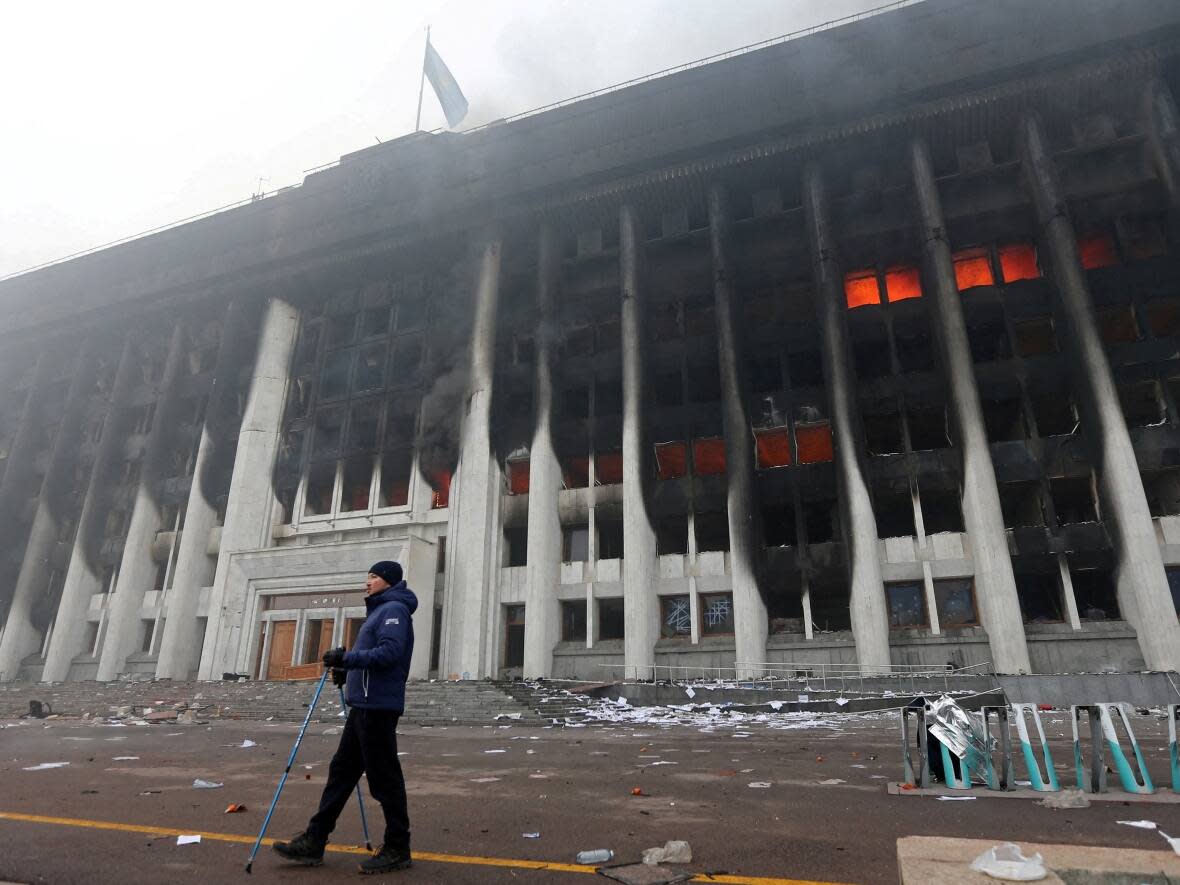
The speed of the political upheaval this week in the Central Asian nation of Kazakhstan has astonished many observers, and left a Canadian university professor who teaches there wondering about its fate.
Helene Thibault is a faculty member at Nazarbayev University in the capital, Nursultan, where she has taught political science for the last five years. She was back home in Montreal this week when the country exploded in violence.
"It's very surprising to see the scale of the protests," Thibault told CBC News. "It's chaotic and it's hard to know how functional the country is going to be in a week or two."
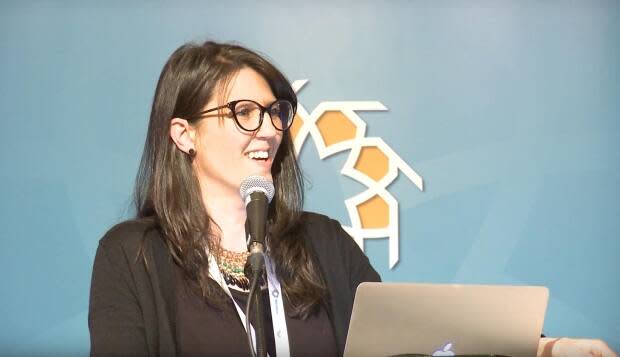
The unrest was initially triggered by a sudden doubling of fuel prices, but frustration over rising inflation and a sluggish economy due to the COVID-19 pandemic may have also been a factor.
With large parts of Kazakhstan's internet down, information remains hard to come by, but the bloody scenes shown on government-run TV suggest a desperate situation, especially in the country's largest city, Almaty.
Pitched street battles between security forces and armed protesters — or "terrorists," as the government refers to them — have led to a number of deaths.
Reuters quotes figures from the country's interior ministry, which claims 26 "armed criminals" have been "liquidated," while 18 police and national guard members have died, though the true numbers may be far higher.
Key city buildings, from the former presidential palace to the mayor's office, were left burned out, blackened and gutted. Video also showed the terminal at the Almaty's main airport had been ransacked.
Rich in resources, but unequal
On Friday morning, President Kassym-Jomart Tokayev issued a "shoot-to-kill order" if there are further demonstrations.
Other parts of the vast country, including Nursultan, appear calmer, although protests have been widespread.
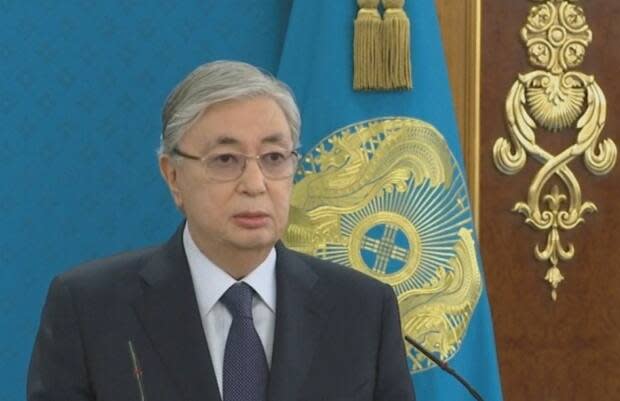
Kazakhstan, which is the size of Western Europe but with a population of only 17 million people, is rich in oil and minerals and accounts for 15 per cent of the world's uranium production.
But there is also terrible inequality — 162 people own 55 per cent of the nation's wealth, according to London's Chatham House Institute.
Almost as striking as the sudden violence was Tokayev's request for Russia, Belarus and other members of the Collective Security Treaty Organization (CSTO) to send soldiers to help him regain control.
The organization has existed for almost 30 years — ostensibly to deter external threats, not quell internal uprisings. This was the first time CSTO has acted on a call to intervene on behalf of one of its members.
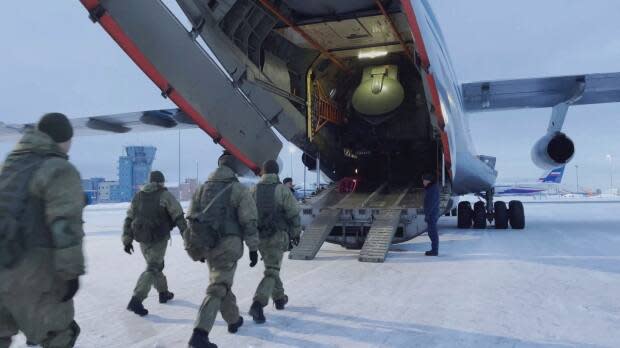
Russian TV has been broadcasting near-hourly scenes of its military aircraft, loaded up with troops, landing in Kazakhstan and taking up positions at strategic points. It's unclear how many foreign troops have arrived in the country, but some independent experts have put the number at around 3,000.
Possible power struggle
Until this week, Thibault said Kazakhstan had been relatively stable politically. Its long-time ruler, 81-year-old Nursultan Nazerbayev — who gave his name to the university Thibault teaches at — handed off most powers to Tokayev in 2019, but Nazerbayev retained control of key security ministries.
Now, there are reports that Nazerbayev and his family have fled Kazakhstan, suggesting that at least some of the violence may be the result of a fight between groups of elites loyal to the two men.
When Nazerbayev gave up the presidency in 2019, as a parting gift, the government changed the name of the capital from Astana to Nursultan. Already, some commentators in Kazakhstan have begun reverting back to the old name, and Thibault wonders if Nazarbayev may be erased from other places, too.
"I was even wondering if our university is going to change its name," said Thibault.
While both Nazarbayev and Tokayev were considered allies of Russian President Vladimir Putin, they also pursued close relations with Western nations. Some of the largest energy companies in the world do business in Kazakhstan.
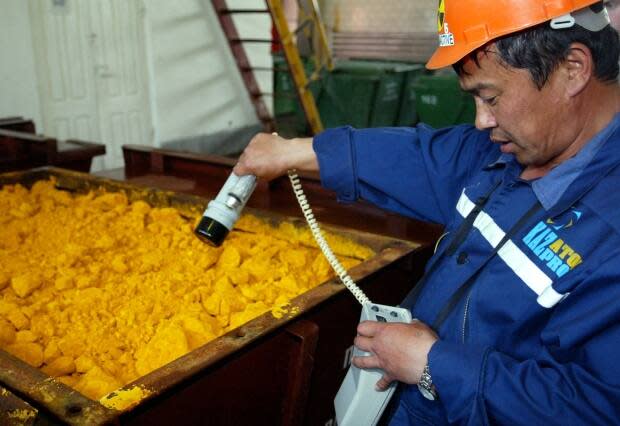
Global Affairs says Canadian companies did just under half a billion dollars in bilateral trade with the Central Asian country in 2020, which was a drop from previous years.
Saskatoon-based Cameco has a minority stake in a uranium project in southern Kazakhstan. In a release Friday morning, Cameco called the situation in the country "dynamic and evolving" and said it would understand the implications of the upheaval "once we have had a chance to communicate with our [joint venture] partner Kazatomprom."
Proud of its sovereignty
It's the arrival of foreign troops — particularly Russians — that may be the real game-changer in Kazakhstan.
"Sovereignty is something that the Kazahk population has really fought for over the years and is extremely proud of," said Ben Godwin, a political risk consultant with London-based PRISM, who lived in Kazakhstan for seven years. "The idea of potentially losing sovereignty due to the presence of foreign forces is very disturbing to many within Kazakhstan."
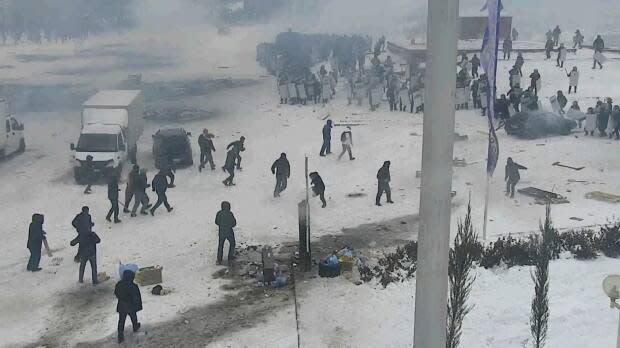
Still, the fact that Tokayev felt he had to summon help — "peacekeepers," as he referred to them — may suggest Russian troops were needed to give his side an edge, or that local security services were reluctant to use violence against their own people.
Outside human rights groups say the arrival of troops from both Belarus and Russia means greater repression of civil rights in Kazakhstan may be imminent.
"We've seen an absolute crackdown against civil society in both Belarus and Russia, really unprecedented," said Marie Struthers, director of the Central Asian office for Amnesty International, citing a "stamping-out of freedom of expression, freedom of political association of assembly."
"I fear that such a scenario might be in store for Kazakhstan."
'I worry a lot'
Russia is already engaged in a tense confrontation with Western nations over the future of Ukraine. Tens of thousands of Russian troops, tanks and heavy machinery are currently within striking distance of Ukraine's eastern borders, and emergency talks involving the U.S., NATO and Russia are set for next week to try to defuse tensions.

Putin has insisted that the U.S. and NATO recognize a Russian role in determining what happens in its "sphere of influence," which would include post-Soviet states such as Ukraine and Kazakhstan.
The unexpected Russian troop deployment in Kazakhstan may work out well for Putin, says Godwin, as it could make Kazakhstan a more reliable ally and bolster Russia's prestige.
"You don't look a gift horse in the mouth," Godwin said. "If one of your neighbouring countries invites you to plant a couple of thousand troops in their country, you probably take the opportunity."
Thibault said she has booked a flight back to Kazakhstan for two weeks from now, but has no idea if it will actually happen. With the internet out and information scarce, she says people she knows in Kazakhstan are hunkering down and waiting until the situation is clearer.
"They don't seem to be worried at all — because they don't know what's happening," she said. "I am on Twitter all day and I worry a lot."


